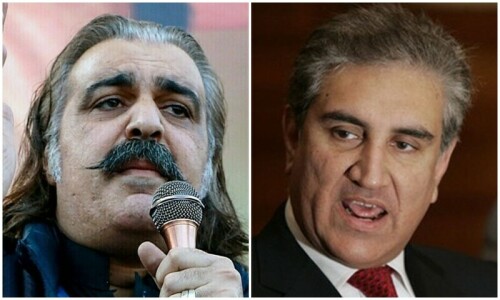KARACHI: The celebration of the rich and diverse Pakistani culture and literature at the three-day Adab Festival culminated with a closing ceremony against the beautiful backdrop of Governor House on Sunday evening.
Peter Alan Oborne, British broadcaster and former chief political commentator of The Daily Telegraph who was the keynote speaker at the event, amped up the crowd by sharing his excitement at being back in Karachi and also taking part in the Adab Festival. He shared there were indeed many reasons to hope for Pakistan, and Pakistanis should be very proud of their journey.
Recalling his first trip to Karachi 10 years ago,
Mr Oborne said that the city was virtually in a state of civil war. “Karachi used to be one of the most dangerous cities on the planet and the change is amazing,” he said. Over time things have vastly improved and it has become easier for foreigners to visit and live here, according to him.
He said Pakistan didn’t represent a narrow set of western values and that set it apart from the world. From public policy, to foreign relations, and a more politically engaged population, there were several positive changes in the country which would continue to make Pakistan greater, he added. “However, there are some matters of concern, especially those related to the freedom of press which is being threatened. A lot of damage will be done to the image of Pakistan abroad if this harassment of the press continues,” he shared.
Co-founder of the festival, Ameena Saiyid spoke about the idea of the literature festival caught fire many years ago and still burns brightly, inspiring more such events to take place. “The Adab Festival is a mixture of the deeply intellectual, with the sensuous, light-hearted and cheerful, the modern and the traditional, that will appeal to people from all walks of life.”
She even addressed the controversy regarding the name of the festival in which the co-founders were no longer using the name of ‘Pakistan Literature Festival’, according to organisers, because “Oxford University Press has filed legal proceedings against us temporarily restraining us from using this name for such a festival. We are rigorously contesting such legal proceedings but since there is no legal restraint against us holding literature festivals, we have decided to hold it in the name of the Adab Festival Pakistan.”
Ms Saiyid said: “Literature festivals are open source and not a monopoly and we would like people to take it from here to all parts of the country.”
Asif Farrukhi spoke about the moment of parting after three days of events including discussions, book launches, theatre, dramatic readings and music. “It took a lot of hard work to pull off the Adab Festival against all odds,” he said.
He also shared a vision for the next Adab Festival, which was expected to be bigger and better and would iron out all the shortcomings of the first time.
Author Ahmed Rashid chartered the trajectory of the literature in English in Pakistan that he said took around 70 years to develop. Fiction writers such as Kamila Shamsie and Mohsin Hamid did a great service to Pakistan in the way they wrote about their home. He expressed delight at the increasing number of authors in Pakistan.
“We have learnt painfully that literature is not influenced by government policies but development in civil societies, how ordinary people change the social landscape around them. However, we are witnessing a failure of civil society as the state institutions attempt to force feed us into a single narrative. No country can survive without the flourishing of civil society, such as through NGOs, fair and equitable education system, respect for human rights and especially for women and children, and a flourishing media.”
Published in Dawn, February 4th, 2019













































Dear visitor, the comments section is undergoing an overhaul and will return soon.